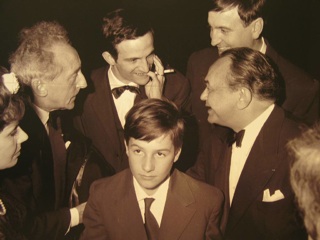

The Film and Media Studies program provides students the opportunity to study the formal components of film, television, and emerging media (e.g. narrative, cinematography, editing, mise-en-scene, sound, immersive design) within aesthetic, ethical, cultural, socio-political, and historical contexts. Our interdisciplinary approach not only enhances students' ability to interpret their moving image environment, but also cultivates a critical understanding of the changing role of moving images in the world.
Film and Media Studies courses share the following learning goals:
· To learn the technical grammar and conceptual tools to analyze and write about moving image media.
· To enhance students’ perceptual sensitivity to the cinematic medium, such that students see/hear a film with keener attention. We examine cinema as art, entertainment, and social advocacy.
· To critically situate media within a broader cultural, aesthetic, and historical context. In essence, to understand how moving images shape and are shaped by the environment in which they are produced, circulated, and viewed.
· To equip students with the digital skills so that they not only interpret, but actively “talk back” and contribute to their media environment through works of Videographic Criticism, documentaries, curated exhibits, podcasts, and long-form films.
· To bridge our seminar discussions and school projects with the broader media environment beyond campus. Through guest speakers, site visits, internships, and fellowships, students will make connections with professionals working on the cutting edge of film and media production. Hendrix alumni work in the fields of commercial television, public media, feature fiction, social media, and emerging tech. Our classes engage with local filmmakers in Arkansas as well as media hubs in Los Angeles, Washington, DC, Atlanta, New York, and Boston.
Students can pursue a minor in English/Film and Media Studies Studies or can pursue a concentration in Film and Media Studies through the English department, which offers an English-Film and Media Studies major. Interested students are encouraged to contact Dr. Kristi McKim or Dr. Joshua Glick for more information.